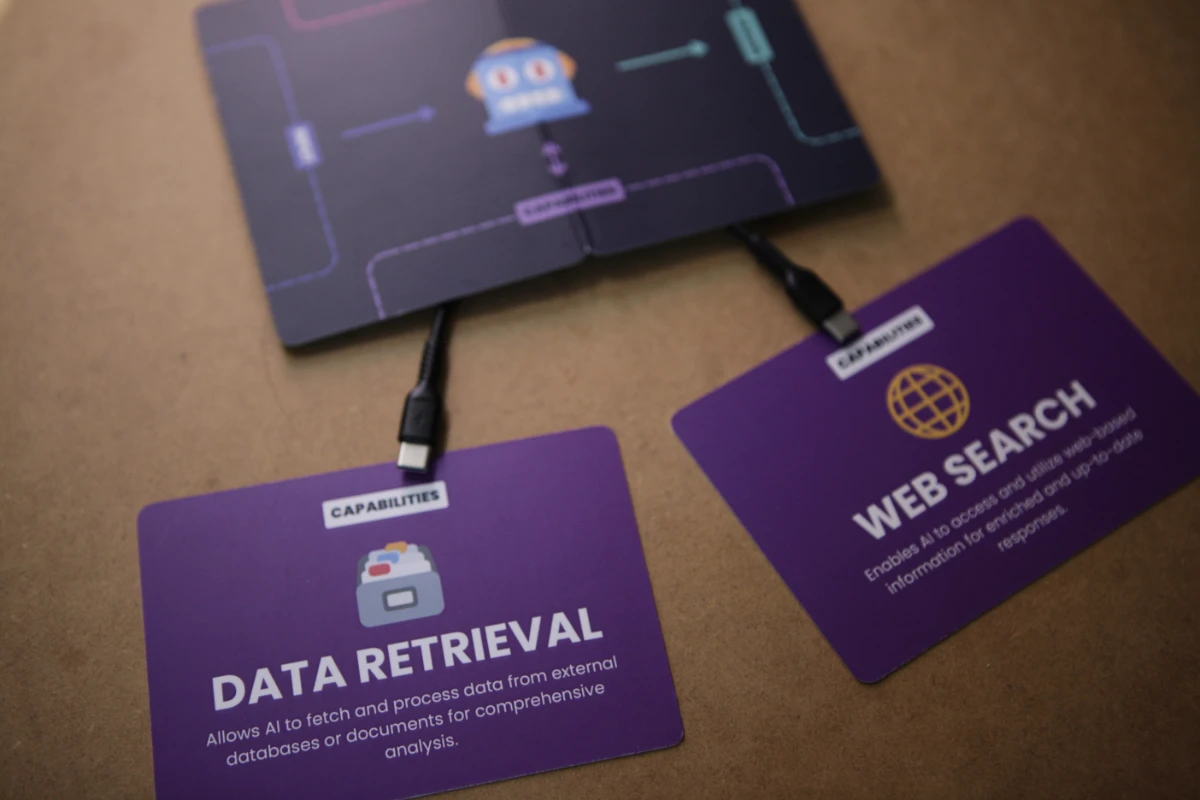Can MCP Become the Universal Adapter for AI Agents?
Can MCP Become the Universal Adapter for AI Agents?
What is MCP?
I've been looking into the Model Context Protocol (MCP), an open standard Anthropic created to simplify how AI assistants connect with tools and data.
In my view, it's basically trying to be like a USB-C port for AI.

Just like USB-C lets many devices connect using one standard, MCP aims to give us a standardized way for AI to use tools like data retrieval or web search.
The Problem MCP Tries to Solve
Large language models typically sit isolated, unable to easily access stuff we need them to work with (like files, databases, or web content) or use external tools (like Slack, email, or Google Drive).
Connecting them to each new data source or tool usually requires custom-built integrations. I've seen this firsthand - it's time-consuming.
How MCP Works
MCP provides a single, standardized connection approach. Instead of building separate custom integrations for each new data source or tool, developers can use MCP, making connections simpler and faster.
It uses a straightforward setup:
- MCP Hosts (Clients): Your AI assistants (like Claude Desktop or Cursor IDE) that need to access tools and data
- MCP Servers: Small programs that provide standardized access to specific tools or databases. You can find many open-source examples in the official repository.
A Real Example of How This Could Work
Let me walk through how I think this could be useful. Say you have an AI assistant set up with MCP, connected to:
- Stripe (for payments)
- Todoist (for tasks)
- Brave Search (for web search)
Here's what you might do:
- You ask: "Can you check my latest customers from yesterday?"
Your AI uses the Stripe MCP Server to fetch the recent customers and shows you who signed up yesterday. - You say: "Use Brave Search to find more information about these companies." Your AI searches the web using Brave Search to gather additional context about your new customers.
- You say: "Add a to-do in Todoist to thank each of these customers (because obviously I wouldn't dare use AI to thank someone PERSONALLY 😉)."
Your AI uses the Todoist MCP Server to add this to your tasks.
No coding needed. That's the idea behind MCP - connecting different tools into a workflow through one standard.
Who's Using MCP Now?
Anthropic provides several official reference servers that demonstrate core MCP features:
- GitHub MCP Server: For accessing repos and code
- Slack MCP Server: For messaging and Slack stuff
- Google Drive MCP Server: For managing files
- Brave Search MCP Server: For web search capabilities
Other companies are creating their own MCP servers too:
- Supabase: For database access
- Obsidian - For accessing Markdown notes
- Todoist - For task management
- Stripe - For payment processing
Development tools companies including Zed, Replit, Codeium, and Sourcegraph are working with MCP to enhance their coding platforms.
What I See as the Benefits
- Simpler Integrations: One protocol instead of many custom ones
- Easier to Scale: Adding new tools shouldn't require rebuilding everything
- Consistency: Clear guidelines for how AI talks to software
- Flexibility: Switching AI providers or software doesn't break everything
- Ready-Made Options: Some pre-built servers save time
The Challenges I'm Seeing
I think MCP faces some significant hurdles:
- Connection Requirements: It uses continuous server connections (Server-Sent Events), which is more complex than serverless API setups
- Security Questions: The "sampling" feature (where servers request AI actions) raises some security concerns
- Overengineered and Overlap With Existing Tools: like the OpenAPI Specification, already widely adopted, used by OpenAI for custom GPTs.
- Missing Authentication: There aren't great built-in guidelines for security yet
- No Central Directory: There's no easy way to find and trust MCP servers
- Maintenance Reality: Developers still need to maintain their own servers
- Not Beginner-Friendly: Right now, setting up MCP with Claude Desktop requires editing JSON configuration files - definitely not user-friendly for non-technical people
So, Can MCP Become the Universal Standard?
So back to my original question - can MCP actually become the universal adapter for AI?
I see two main issues. The surface problem is that it's not beginner-friendly right now - editing JSON files to set things up isn't going to work for most people. But that's just a matter of UI and will probably be sorted out soon.
The deeper concern is whether MCP is overengineered for what it's trying to do. For example, the OpenAPI Spec is already widely adopted and powers OpenAI's custom GPTs. Other proposals like agents.json offers a lighter alternative that works with existing REST APIs without requiring new endpoints or changing deployment methods. Both leverage what developers already use rather than introducing new requirements.
Time will tell if MCP finds its place or if simpler solutions win out. There is definitely a momentum for MCP right now! Either way, connecting AI to our tools in a standardized way is a game changer - maybe that will happen with MCP, or a lighter version of MCP or... maybe something else!